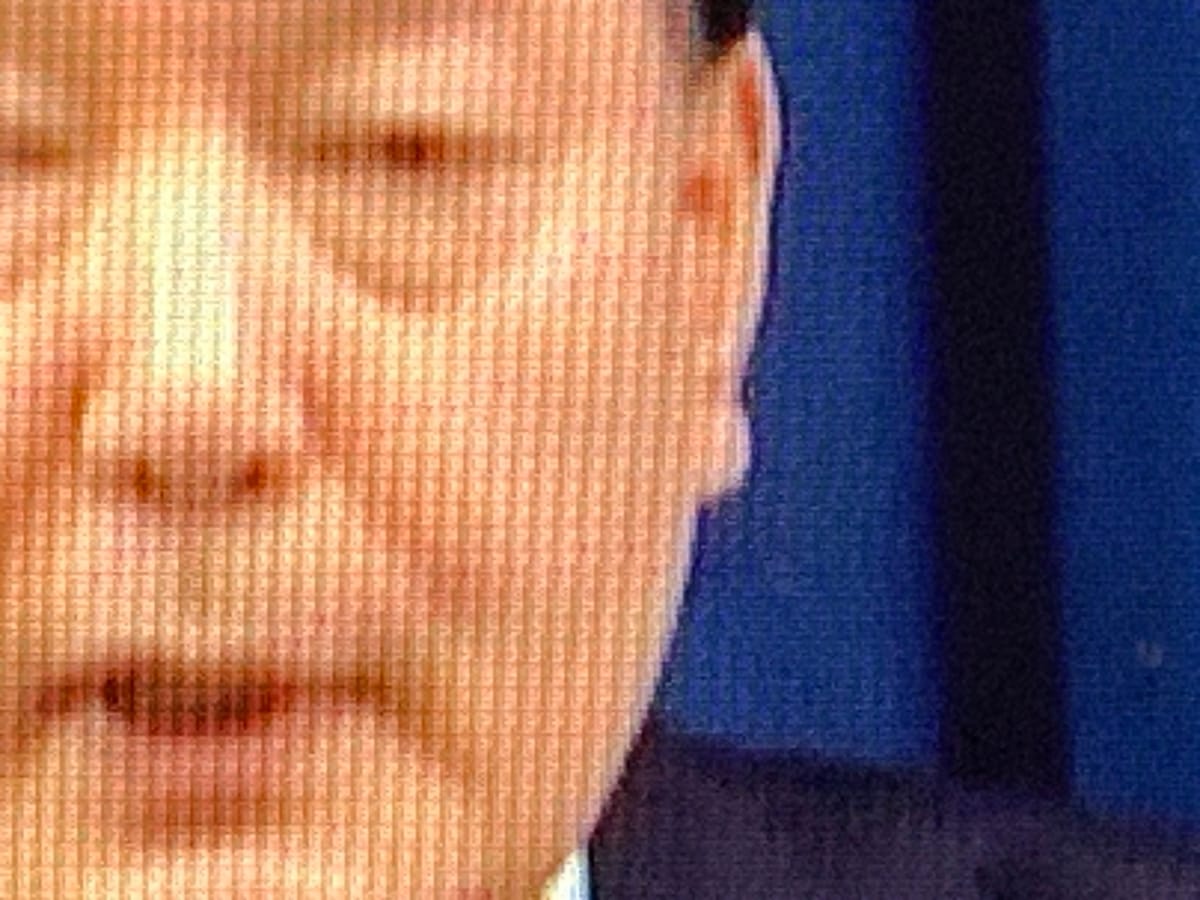Stopping a runaway president
Indignity Vol. 4, No. 212

COMPARATIVE POLITICS DEP'T.
South Koreans Recognize an Emergency When They See One
WHILE UNITED STATES commentators were arguing about whether or not Joe Biden had violated the sacred standards of presidential power by pardoning Hunter Biden, the president of South Korea, Yoon Suk Yeol, tried and apparently failed to seize absolute control of his country by declaring martial law. Outraged South Korean citizens rushed to the National Assembly in the middle of the night to help the members of the legislature fend off interfering but diffident troops, so the National Assembly could convene a majority and cast a unanimous vote against the martial law proclamation. A few hours later, Yoon withdrew the order.
Coverage so far hasn't landed on an explanation of what exactly led Yoon to try the coup. He was profoundly unpopular and the opposition controlled the legislature, but before today there was nothing going on that registered in the world press as an out-of-control political crisis. And then there were people in the assembly building shooting a fire extinguisher to drive back military forces in the halls.
It was alarming and provisionally heartening to witness from the daytime side of the planet, through the aperture of the American internet. Sarah Jeong of the Verge delivered a fine-grained, semi-accidental thread of reporting from the scene on Bluesky, as the site finally took on the breaking-news role abandoned by Twitter. Nobody quite grasped everything that was going on, but the people in Seoul knew enough to understand it was time to act decisively.
Meanwhile, over here, Joe Biden had brought Donald Trump to the White House for a smiling transition meeting, one president to another, a showcase of goodwill and acceptance—a tribute to the Democratic Party's ironclad commitment to ineffectuality. I remain wary of any confident explanations about exactly what went wrong in the election, this soon afterward, but I had just been reading an essay by Elad Nehorai about the fatal ebbing of the anti-Trump vote between 2020 and 2024.
Nehorai argued that psychologically, people were enervated by existential dread, from gaining and then losing the financial security of the pandemic relief programs, and from witnessing global warming begin to translate into ever more frequent catastrophes. But also, he wrote, there was the demoralizing problem of accountability, or the lack of it:
When Biden became president, instead of focusing on drastic measures to ensure democracy was shored up and accountability was restored, he appointed Merrick Garland, a known moderate, as Attorney General because he was respected by Republicans as well as Democrats. In theory, the goal was to restore unity and trust in the government. Neither happened...
[T]he 95% of Democratic voters and 57% of independents who wanted Trump held prosecuted had just watched a man who flouted the law repeatedly, from before he was president to during his presidency to after his presidency, not only not be held accountable but able to run for president again. Almost all of it was due to Republican obstruction, except for Garland’s disastrous investigation.
But it wasn’t just that. It was the lack of accountability we had witnessed now for decades for the rich and powerful. It was the way the rich were able to destroy our livelihoods with impunity, the way so many people in power we had seen use regular people to achieve even more power walked away with no accountability, the way many of them then went on to continue to hold positions of power, that affected the anti-Trump mood.
And Dave Karpf's newsletter went at that same part of the problem, looking at the implicit assumptions that guide the American media and politics:
A thing is wrong and objectionable if it is uncouth—crass behavior that undermines faith in social institutions and the social order.
The Supreme Court intervened multiple times to help Donald Trump in the 2024 election. They unanimously ignored the plain text of article 3 of the Constitution to ensure that Trump would be on Colorado’s ballot, despite engaging in insurrection. And of course they did! Consider how awkward it would have been if the state of Colorado (and perhaps other states as well!) simply did not include the Republican Party’s nominee for President on the ballot in November. Republicans in Colorado chose to vote for the insurrectionist during the primaries. Surely they ought not be deprived of the right to vote for him in November.
That would have been uncouth.
Likewise, of course the Court prevented Donald Trump from facing a federal trial for his role in the January 6th attack while running for reelection. And of course his sentencing after his conviction in New York was delayed, first until after the election and, now, indefinitely.
Consider the optics of a Presidential nominee standing trial, or serving prison time, while running for office...
Now that he is, once again, the President-elect, our media and political elites are reverting to their core social behaviors. Joe Biden is taking polite photo-ops with the President-elect, and promising to attend his inauguration. Democratic governors are promising to seek common ground and find bipartisan consensus with the administration.
It isn’t that they did not mean it when they called Donald Trump a fascist and a threat to Democracy. They meant it. But they lost anyway. And now the social order is imperiled, and they are reverting to form, doing all they know how to do to shore up trust and faith in the system, in the hopes that it will all turn out alright.
Four years ago, the official guardians of the American political system—along with its self-appointed guardians—witnessed an assault on the republic's foundations. Their response was to pretend it was something else and to hope it would go away. When the next attack comes, however soon that may be, will they see it for what it is?

WEATHER REVIEWS
New York City, December 2, 2024
★★★ Cold air trickled in around the vestibule door while the parka was being zipped. Furious cawing announced a confrontation between a small mob of crows and a red-tailed hawk on the fence rail atop a housing tower. The crows assailed the hawk till it flapped down to a lower building, then they went away and left it. The first moments in the sun had been comfortable enough, but a stinging wind came through the shade, swirling leaves and leaf crumbs along with it. GENERAL FOUNDRIES, INC. and MADE IN INDIA stood out boldly on a storm-drain grate in the glancing sun. Spots of trampled gum gleamed. A near empty full-sized paper shopping bag, requested for convenience, swung around so stubbornly on its handles in the wind it had to be gathered into a bundle. Even out of direct light the stonework jumped out to meet the eye: the church on the corner over-filigreed like a dessert too intimidating to eat; a cherub or plump godling among grapevines on a vertical carving passed by a hundred times before; goats' heads equally unnoticed till now under a window. The hawk or another one had attained the top of a water tower, though the birds below seemed unconcerned.

EASY LISTENING DEP'T.
HERE IS TODAY'S Indignity Morning Podcast.

Click on this box to find the Indignity Morning Podcast archive.


ADVICE DEP'T.
GOT SOMETHING YOU need to justify to yourself, or to the world at large? Other columnists are here to judge you, but The Sophist is here to tell you why you’re right. Direct your questions to The Sophist, at indignity@indignity.net, and get the answers you want.

SANDWICH RECIPES DEP'T.
WE PRESENT INSTRUCTIONS in aid of the assembly of a sandwich selected from Entertainment Cook Book: Recipes by Students of Central College for Women, Lexington, Missouri, compiled by Lexington Central College Club, Mo. Central College for Women, published in 1919 and available at archive.org for the delectation of all.
FIG AND NUT SANDWICHES
1 ten cent loaf of bread,
1 ten cent package of figs,
1 tablespoon sugar,
Nuts.
Put the figs through the meat chopper, then let them stew a few minutes on the sugar, until they mash and spread easily. Butter thin slices of bread, and on one spread the figs, and on the other the ground nuts. Put the slices together, and trim the edges in any shape desired. This quantity makes about twenty sandwiches, and they are lovely with tea. — Melville Ellis, 4145 Virginia Ave., Kansas City, Mo.
If you decide to prepare and attempt to enjoy a sandwich inspired by this offering, be sure to send a picture to indignity@indignity.net.









